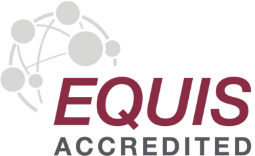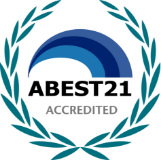Research
Research Activities
Research activities at GSM.
Information regarding related symposium and workshops will be uploaded to the "Events" page.
Project of Ministry of Education, Culture, Sports, Science and Technology in FY2017 “Project to promote and enhance advanced professionals training”
What Should the Core Curriculum of Business Schools Be?
〜Project of Ministry of Education, Culture, Sports, Science and Technology in FY2017 “Project to promote and enhance advanced professionals training” theme: Demonstration and improvement of core curriculum etc. in professional graduate schools of management (MBA)〜
Graduate School of Management, Kyoto University has been commissioned by the Ministry of Education, Culture, Sports, Science and Technology (MEXT) to conduct a survey and research on "Demonstration and improvement of core curriculum etc. in professional graduate schools of management (MBA)" in fiscal 2017 (1).
(1) Committee for the Commissioned Project for the Promotion of Enhancing Functions for the Training of Highly-Specialized Professionals (MEXT) (Japanese)
https://www.mext.go.jp/b_menu/shingi/chousa/koutou/084/index.htm
This project examined the state of business schools in Japan. The history of Japanese business schools is young and after the introduction of the professional graduate school system, some Japanese business schools have been born and are active around Japan since the beginning of the 21st century. Unlike in Europe and the U.S., many Japanese companies do not specifically position business schools and MBA graduates in their personnel policies, hiring, and evaluation. Under such an employment system, Japanese business schools have unique issues and themes to be challenged.
Moreover, changes are underway that will cause a major transformation of industry and society from the present day to the future. In such a drastically changing environment, the way companies and organizations should be and the way working people should work must also change. It has always been true that those who do not change cannot survive, and this is precisely the thesis that we must establish now more than ever.
The following five points are the main arguments made through this project.
- The education curriculum of the business school should be driven by clarifying its mission so that it proactively responds to the changing business environment (mission-driven).
- The education curriculum of the business school should be systematically designed so that the three points: goal-evaluation-method are consistent with each other based on instructional design.
- Learning goals for business schools should be defined as competencies, and each lesson subject should be provided and improved so as to satisfy the competency.
- According to surveys, learning at a business school etc. is not regarded as an important human resource development method for many companies in Japan, but companies sending employees to business schools or accepting graduates certainly recognize their value.
- According to surveys, it is highly appreciated that business school graduates (MBA) have learned a lot of competency items at school, and more than half of them are active in departments or positions of companies.
The project summary (English) and the full report (Japanese only) can be downloaded from the links below.


